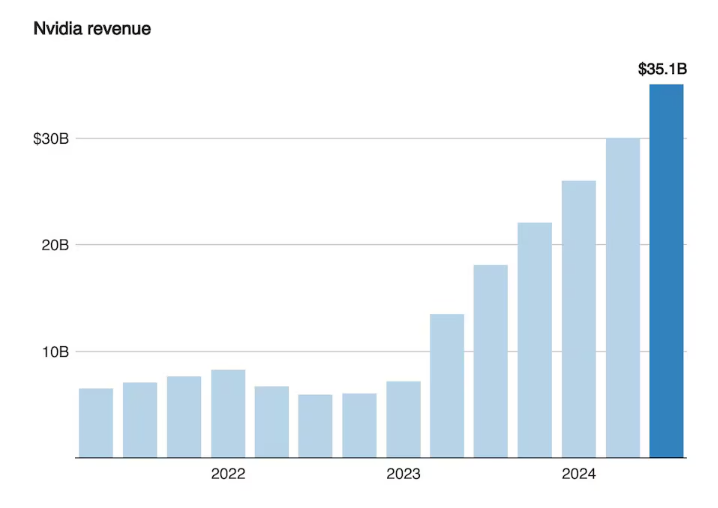SoftBank Group Corp., the Japanese tech investment powerhouse led by Masayoshi Son, swung back to profitability in the latest quarter, posting a net profit of 1.18 trillion yen ($7.7 billion) for the period ending September. This represents a major turnaround from the 931 billion yen loss it reported in the same quarter last year and far exceeds analyst expectations, which had projected a profit of around 287 billion yen ($1.87 billion), according to data compiled by LSEG.
The profit surge was largely driven by the rising stock prices of several companies within SoftBank's Vision Fund portfolio. Vision Fund, SoftBank’s flagship investment vehicle, saw a significant gain of 608 billion yen over the quarter. This gain reflects the company’s careful pivot in strategy, as it adopts a more conservative investment approach following a turbulent period of high-growth tech valuations. Previously, SoftBank faced severe losses in its tech portfolio due to global interest rate hikes, which reduced the market value of many of its startup holdings. These interest rate increases pressured high-growth sectors that SoftBank had heavily invested in, and Vision Fund was compelled to retrench and reconsider its investment strategy.
After several difficult quarters, the Vision Fund is now beginning to stabilize. Vision Fund 1 has achieved a gross gain of $22.6 billion since its inception, though this gain has been largely balanced out by Vision Fund 2’s accumulated loss of $21 billion. This dichotomy within SoftBank’s portfolio illustrates the challenges faced by Vision Fund 2, which invested heavily in growth-stage tech startups just as interest rates began to rise and tech valuations fell sharply.
In addition to the performance of Vision Fund holdings, SoftBank benefited from currency gains as the yen appreciated against the dollar over the quarter. This currency shift provided SoftBank with an additional 289 billion yen gain, as it reduced the cost of servicing its dollar-denominated liabilities. By easing the impact of foreign currency obligations, the yen’s appreciation offered the company some financial relief and helped to buoy its overall performance for the quarter.
Overall, the results signal that SoftBank's cautious shift and portfolio diversification may be paying off, as the firm navigates a challenging investment landscape that has seen fluctuating valuations and global economic pressures.





